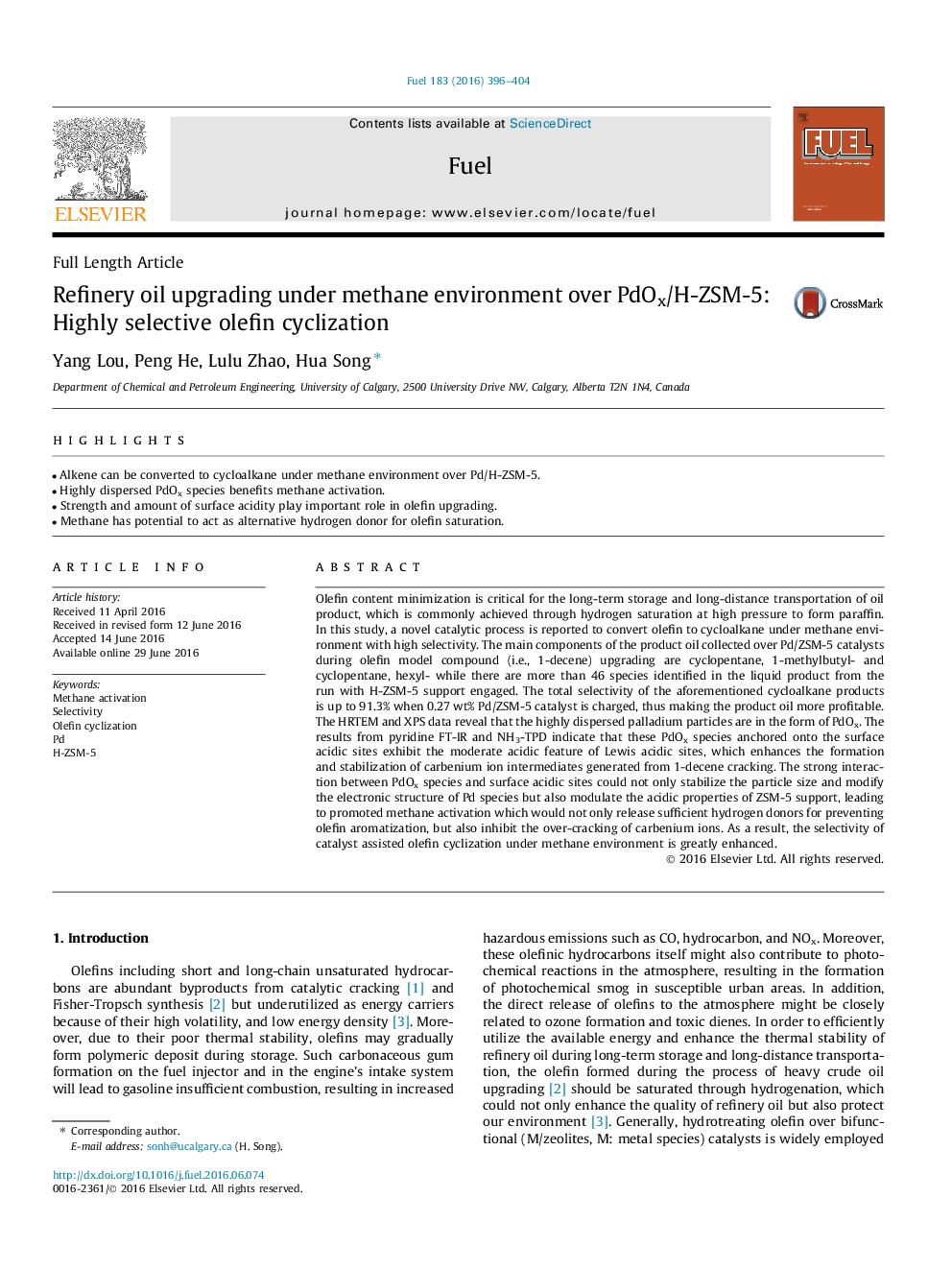| Article ID | Journal | Published Year | Pages | File Type |
|---|---|---|---|---|
| 6633306 | Fuel | 2016 | 9 Pages |
Abstract
Olefin content minimization is critical for the long-term storage and long-distance transportation of oil product, which is commonly achieved through hydrogen saturation at high pressure to form paraffin. In this study, a novel catalytic process is reported to convert olefin to cycloalkane under methane environment with high selectivity. The main components of the product oil collected over Pd/ZSM-5 catalysts during olefin model compound (i.e., 1-decene) upgrading are cyclopentane, 1-methylbutyl- and cyclopentane, hexyl- while there are more than 46 species identified in the liquid product from the run with H-ZSM-5 support engaged. The total selectivity of the aforementioned cycloalkane products is up to 91.3% when 0.27Â wt% Pd/ZSM-5 catalyst is charged, thus making the product oil more profitable. The HRTEM and XPS data reveal that the highly dispersed palladium particles are in the form of PdOx. The results from pyridine FT-IR and NH3-TPD indicate that these PdOx species anchored onto the surface acidic sites exhibit the moderate acidic feature of Lewis acidic sites, which enhances the formation and stabilization of carbenium ion intermediates generated from 1-decene cracking. The strong interaction between PdOx species and surface acidic sites could not only stabilize the particle size and modify the electronic structure of Pd species but also modulate the acidic properties of ZSM-5 support, leading to promoted methane activation which would not only release sufficient hydrogen donors for preventing olefin aromatization, but also inhibit the over-cracking of carbenium ions. As a result, the selectivity of catalyst assisted olefin cyclization under methane environment is greatly enhanced.
Keywords
Related Topics
Physical Sciences and Engineering
Chemical Engineering
Chemical Engineering (General)
Authors
Yang Lou, Peng He, Lulu Zhao, Hua Song,
